I would call a lawyer. What he did was unforgivable.
My Husband’s Tantrums Are Leading Him to Taste His Own Medicine
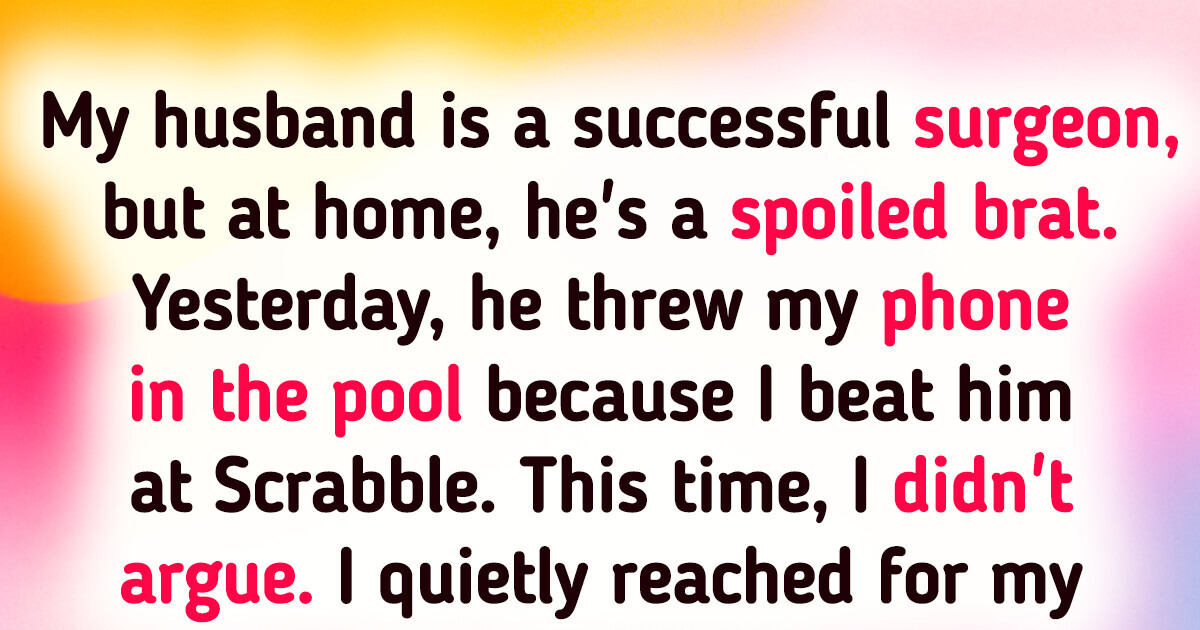
Have you ever been so frustrated with your partner that you were tempted to throw their most prized possession in the pool? That's exactly what happened to one of our readers, Nara, who wrote to us in a state of desperation. Her husband seems to have the emotional maturity of a toddler, throwing tantrums and lashing out when he doesn't get his way.
Nara decided she'd had enough and took matters into her own hands. Now, she's facing the backlash from friends and family, questioning if her actions were justified. Read Nara's letter and our response below, and tell us what you think.



Nara, your letter paints a vivid picture of a marriage in crisis, where game night turned into a battlefield and prized possessions became casualties. Your situation is complex, filled with hurt, frustration, and a desperate need for change. Let's unpack this together and explore some perspectives that might help you navigate this challenging time.
When a Scrabble match turns into a pool party.

It's completely understandable to feel hurt, angry, and even violated when your partner acts out in such a childish and disrespectful manner. Losing a game, even a competitive one like Scrabble, is absolutely no excuse for throwing your phone in the pool – a deliberate act of destruction and intimidation.
It's clear that this incident is not an isolated one, but rather part of a series of escalating behaviors that have left you feeling like an "emotional punching bag," a term that speaks volumes about the state of your relationship. You deserve to be treated with respect and consideration, not as a target for his misplaced anger and frustration.
You’re not alone in this struggle.
Many people, unfortunately, find themselves in relationships where one partner exhibits immature and even intimidation. These behaviors can range from temper tantrums and sulking to more serious actions like verbal abuse, property damage, or even physical violence. It's important to remember that you're not alone in this and that you deserve to be treated with dignity.
Your husband's actions are not a reflection of your worth or a failing on your part, but rather a sign that he needs to address his own emotional issues and learn healthy ways to cope with his feelings. Seeking out support groups or online forums can be a powerful way to connect with others who have experienced similar situations and gain valuable insights and coping strategies.
Communication is key, but it takes two to tango.

You mentioned that you've tried talking to John about his behavior and even suggested couples therapy, but he refuses to acknowledge the problem, dismissing your concerns as "overreacting." This dismissiveness and refusal to engage in constructive dialogue is a major red flag in any relationship. A healthy partnership requires open and honest communication, a willingness to listen and understand each other's perspectives, and a shared commitment to resolving conflicts in a respectful manner.
His unwillingness to even consider that he might be contributing to the problem suggests a deeper issue at play, perhaps rooted in insecurity, fear of vulnerability, or a lack of emotional maturity. It might be helpful to try writing him a heartfelt letter expressing your feelings and concerns in a calm and clear way. Sometimes, seeing things laid out in writing can have a greater impact than a face-to-face conversation that can easily escalate into an argument.
Setting boundaries is essential for self-respect.

While your reaction to John's behavior is certainly understandable – who wouldn't feel tempted to retaliate after such a blatant act of disrespect? It's important to remember that two wrongs don't make a right. Responding in kind, while emotionally satisfying in the moment, only escalates the situation and can create a vicious cycle of destructive behavior that further damages the relationship. Instead of seeking revenge, focus on setting clear boundaries.
Let John know, in no uncertain terms, that you will not tolerate being treated with disrespect and that his actions have consequences. This might involve taking some space from him, physically and emotionally, to allow both of you to cool down and reflect on the situation. It might even mean considering separation if things don't improve, and he continues to refuse to take responsibility for his actions.
Seeking support can make all the difference.

Dealing with a partner's emotional immaturity can be incredibly draining and isolating. It's crucial to seek support from friends, family, or a therapist. Talking to someone you trust can provide you with much-needed emotional support, a safe space to vent your frustrations, and an objective perspective on the situation. They can help you navigate this difficult period, offering guidance, encouragement, and practical advice.
A therapist, in particular, can provide you with tools and strategies for coping with emotional abuse, setting healthy boundaries, and communicating effectively. Remember, you don't have to go through this alone.
Prioritizing your well-being is not selfish, it's essential.

Nara, above all, it's imperative to prioritize your own well-being. You deserve to be in a healthy, supportive, and loving relationship. You deserve a partner who respects you, cherishes you, and supports your emotional growth.
If John continues to refuse to acknowledge his behavior and work towards change, you may need to make some difficult decisions about the future of your marriage. This is not about "winning" or "losing," but about honoring yourself and your needs. Remember, your happiness and emotional well-being are paramount. You are worthy of love and respect, and you deserve to be with someone who can give you that.
Your feelings are entirely valid, and you’re not wrong for feeling frustrated and hurt by your husband’s actions.

While your reaction was understandable in the heat of the moment, it's important to focus on setting boundaries, communicating your needs clearly, and prioritizing your own well-being. Remember, you deserve to be treated with respect and to be in a healthy relationship.
Don't be afraid to seek support and advocate for yourself. You are strong, you are resilient, and you deserve a love that lifts you up, not tears you down.
John's behavior clearly shows a lack of maturity, but could Nara's reaction also be seen as immature? It's easy to judge from the outside, but true maturity involves handling difficult situations with grace and self-control. Want to learn more about what it takes to be truly mature? Don't miss our next article.
Comments
Related Reads
My Husband Said I Trapped Him With a Pregnancy, So I Embarrassed Him
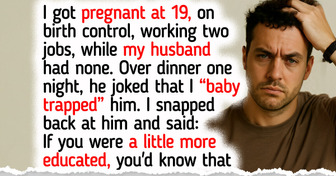
12 People Who Faced Life’s Most Obscene Twists

I Repurposed My Stepdaughter’s Room — This Is Not Her House Anymore
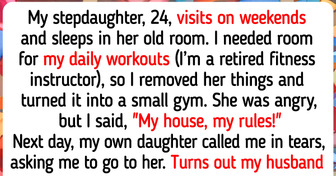
My Ex’s Wife Uses My Daughter as a Free Babysitter—She Wasn’t Ready for My Payback

10+ True Stories With Endings No One Saw Coming
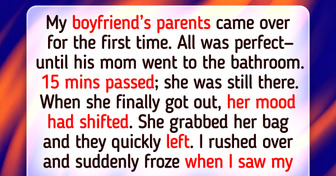
My Co-worker Excluded Me From His Wedding and Got Angry at Me for Telling Others

People Share 10 Date Stories That Are So Awkward, It’s Hard to Believe They Actually Happened

I Refused to Expose My Salary to My Parents, Now My Life Is Falling Apart
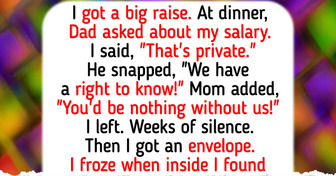
I Refused to Let My MIL Own My Family Budget, Now My Marriage Is on Thin Ice

15 Stories That Prove a Good Heart Doesn’t Go Unrewarded
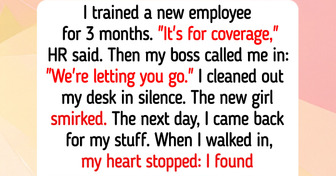
17 Times Kindness Helped People Get Back on Their Feet
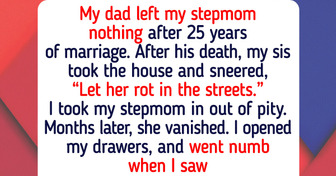
15 Stories That Prove Kindness Is Courage We Often Mistake for Weakness

